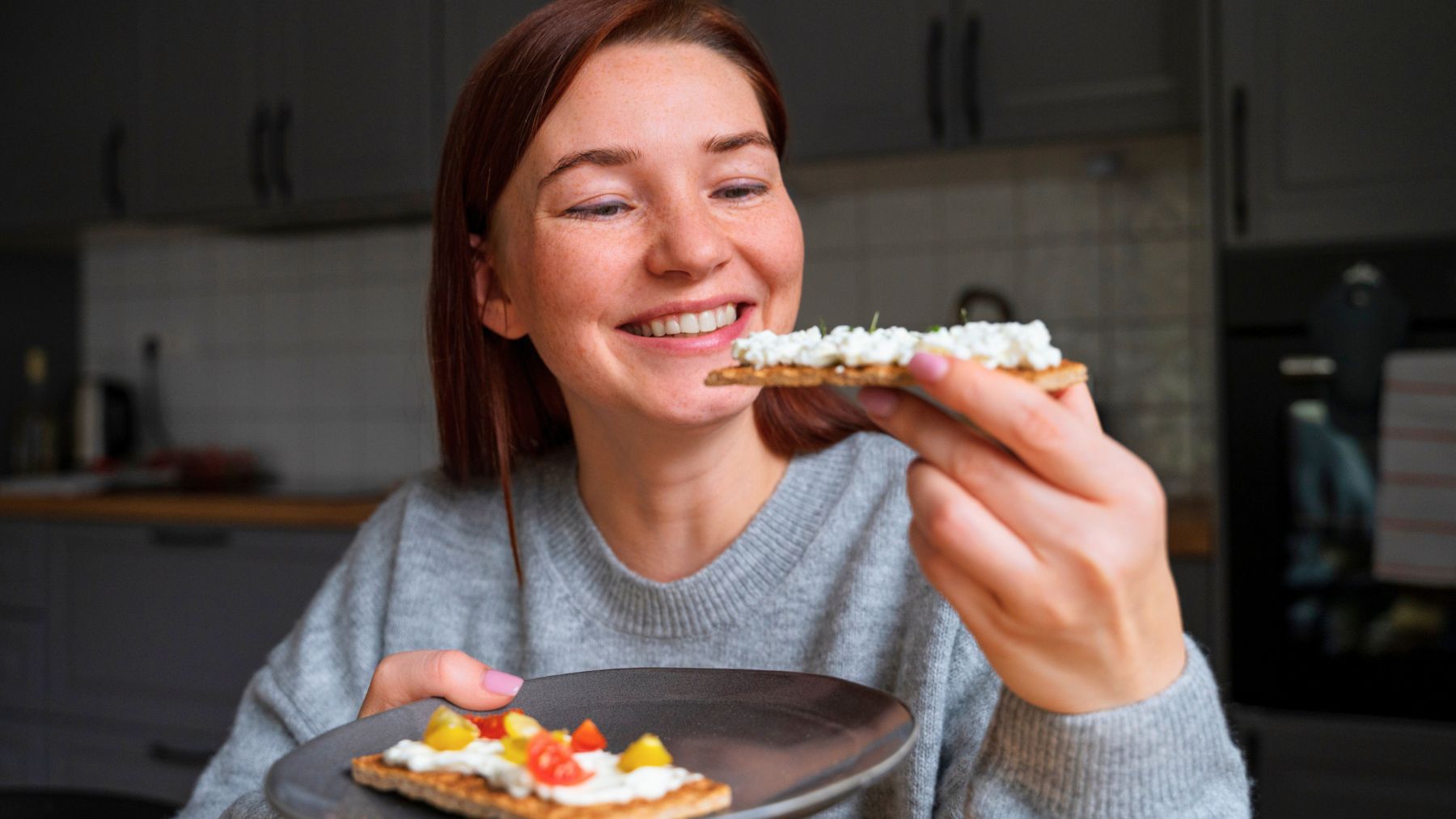If you’ve ever tried to lose weight, you’ve probably heard someone say that cutting carbs is the key. No bread, no pasta, no potatoes. The truth is, you still need carbs, just not in excess. According to registered dietitian Jill Corleone, the right amount depends on your body, your goals, and how active you are.
Figuring out how many carbs you should eat each day can feel confusing, especially when every diet out there gives different advice. In this article, we’ll break down what carbs actually do in your body, how to calculate the amount that supports fat loss, and what to consider before drastically cutting them.
How to know how many carbs you need to lose weight
Carbohydrates are your body’s preferred source of energy. They’re broken down into glucose, which fuels your brain, muscles, and every cell in your body. According to the Dietary Guidelines for Americans, carbs should make up about 45% to 65% of your total daily calories. But if you’re trying to lose weight, you might fall closer to the lower end of that range.
To estimate your target, start with your calorie needs. A moderately active woman who eats about 1,800 calories a day, for example, would need roughly 200 to 300 grams of carbs daily. You can find this number by multiplying your total calories by 0.45 and then by 0.65—that gives you the range of calories from carbs—and dividing by four, since each gram of carbohydrate contains four calories.
If you prefer a lower-carb approach, many dietitians suggest staying between 100 and 150 grams a day, while very low-carb plans like keto limit intake to about 50 grams or less. There’s no one right answer for everyone, and factors like your metabolism, muscle mass, age, and physical activity all affect your ideal carb range.
Athletes and active people usually need more carbs because their muscles rely heavily on glucose during exercise. For them, dropping too low can hurt performance and recovery. On the other hand, people with insulin resistance or metabolic syndrome may benefit from keeping carbs lower to help control blood sugar. Working with a registered dietitian can help you fine-tune this number safely.
More about carbs and weight loss
The best carbs for weight loss are those that digest slowly and provide fiber, vitamins, and minerals—things like oats, brown rice, beans, fruits, and vegetables. These complex carbs keep you full longer and prevent sharp blood sugar spikes that can lead to cravings.
Simple carbs, like white bread, pastries, soda, and candy, are quickly absorbed, leaving you hungry soon after eating. That’s why cutting back on these refined sources is usually more effective than avoiding carbs entirely.
It’s also important to pay attention to portion sizes. Even healthy carbs can add up fast if your servings are too large. Using a food tracking app for a few days can help you see patterns in your intake and energy levels. If you’re tired or struggling through workouts, you might be cutting carbs too low. If your progress stalls, a slight adjustment could get things moving again.
Ultimately, carbs aren’t the enemy. Your body needs them, just in the right amounts and from the right sources. Instead of obsessing over numbers, focus on building meals around lean proteins, vegetables, and high-quality carbs. Combine that with regular movement and good sleep, and you’ll have a weight-loss plan that lasts.

